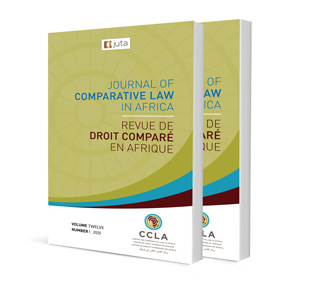
Corporate Social Responsibility Within the Paradigm of Transformative Constitutionalism in South Africa
Authors: Tebello Thabane, Prince Mathibela and Justice Mudzamiri
ISSN: 2521-2605
Affiliations: Senior Law Lecturer, Commercial Law Department, University of Cape Town, South Africa, BA Law, LLB (National University of Lesotho), LLM (UP), LLM (UFS), PhD (UCT). Advocate of the High Court of South Africa and Lesotho; PhD candidate at Stellenbosch University Law Faculty, Commercial Law Department, Attorney of the High Court of South Africa. Legal Advisor at SouthSouth North NPC. BA, LLB (Wits), LLM (University of Cape Town); Postdoctoral Research Fellow, Department of Mercantile Law, University of Johannesburg. LLB (University of Fort Hare), LLM (University of Johannesburg), LLD (University of Fort Hare). Attorney of the High Court of South Africa
Source: Journal of Comparative Law in Africa, Volume 12 Issue 1, p. 190 – 218
https://doi.org/10.47348/JCLA/v12/i1a5
Abstract
South Africa is considered one of the most unequal societies in the world. This inequality is primarily attributed to the negative impact of apartheid on the distribution of resources. To address this issue, efforts have been made to transform society by incorporating substantive equality and transformative justice principles into the Constitution of the Republic of South Africa, 1996, related laws, and voluntary codes. The main object of this article is to investigate whether, in its current form, corporate social responsibility (CSR) has the potential to effectively deepen social transformation in South Africa or if it requires further strengthening. The article compares the approaches of South Africa and India in addressing inequality through legal tools, evaluates the strengths and weaknesses of each approach, and proposes law reform that would ensure social transformation in South Africa.